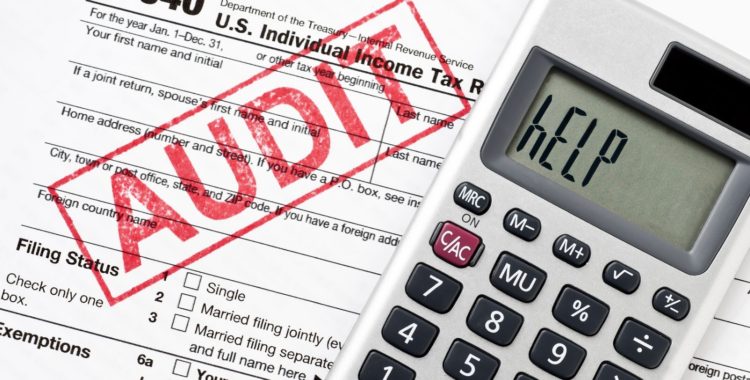What is the New Centralized Partnership Audit Regime?
The Internal Revenue Service has a new audit regime to administer. Taxpayers frequently have asked their tax attorney: what is the new BBA centralized audit regime? Also, how will the new BBA audit regime impact their partnership? Moreover, taxpayer’s ask whether a partner can file an inconsistent tax return. The Bipartisan Budget Act of 2015 (BBA) created a new IRS centralized partnership audit regime effective for partnership tax years beginning after 2017. Additionally, Internal Revenue Code section 6221(b) (as amended by BBA) provides that certain partnerships with 100 or fewer partners may elect out of the centralized partnership audit regime. Form B2 of form 1065 was created to allow partnerships to elect out of the centralized partnership audit regime.
Internal Revenue Code section 6221(b) applies to all partnerships that are required to file a partnership return under section 6031. However, a partnership can elects out of the BBA centralized audit regime.
A partnership is eligible to elect out of the BBA IRS central audit regime if it has 100 or fewer partners for the taxable year. Additionally, a partnership has 100 or fewer partners if it is required to issue 100 or fewer Schedules K-1 for the taxable year. This threshold includes all K-1s required to be issued by any S corporation partners of the partnership.
All partners of the partnership must be:
- Individuals
- C corporations
- A foreign entity that would be treated as a C-corporation if domestic
- Estate of a deceased partner
- S corporations
Partnerships cannot elect out of BBA if one of their partners is a partnerships, disregarded entities, trusts, other foreign entities, nominees, or other estates.
Electing out of the BBA Central Audit Regime
A partnership can make an election out of the BBA central partnership audit regime on its timely filed return, including extensions. The partnership must notify each partner of the election within 30 days of making the election out of BBA. Moreover, the partnership must also disclose to the IRS the name, TIN, federal tax classification, and any other information prescribed in forms and instructions of each partner. This disclosure includes all persons an S-corporation partner is required to send a Schedule K-1 to. Additionally, the election out of BBA must also include a statement that the partner is an eligible partner.
If a partnership desires to revoke an election out of BBA, it must receive the consent of the IRS.
Inconsistent Returns under the BBA Central Audit Regime
Under section 6222(a), a partner shall treat each partnership-related item in a manner that is consistent with the treatment of such item on the partnership return. Proposed regulation section 301.6222-1(a) provided that the treatment of partnership-related items on a partner’s return must be consistent with the treatment of such items on the partnership return in all respects, including the amount, timing, and characterization of such items. The term “partner’s return” is not defined in either section 6222(a) or proposed §301.6222-1(a).
Can a Partner Report a Partnership Related Item Inconsistently?
When a partner reports a partnership-related item inconsistently on an amended return compared to how the item was reported on the partnership return, the partner is making a request for an administrative adjustment of that partnership-related item. Accordingly, the rule under proposed §301.6227-1(a) that provided a partner may not request an administrative adjustment of a partnership-related item was revised. As a result, the regulations account for situations in which a partner treats a partnership related item on an amended return inconsistently with how partnership treated that return. See §301.6222-1(c)(1).
Does Reporting a Partnership Related Item Constitute a Administrative Adjustment Request?
Internal Revenue Code section 6227(c) states that in no event may a partnership file an AAR after a notice of an administrative proceeding is mailed under section 6231. Consistent with section 6227(c), proposed regulation section 301.6227-1(b) provided that no AAR may be filed after the IRS mails an NAP, except as provided in §301.6231-1(f) (regarding withdrawal of a NAP). Accordingly, the final regulations under section 301.6222-1(c)(5) provide that a partner may not notify the IRS that the partner is treating an item inconsistently with the partnership return for a taxable year after the IRS mails a NAP under section 6231.
This rule clarifies that once the IRS initiates an administrative proceeding with respect to a partnership taxable year, pursuant to section 6221(a) any adjustment to a partnership-related item for that year must be determined exclusively within that partnership-level proceeding. Neither the partnership, through filing an AAR, nor a partner, by taking an inconsistent position, may adjust a partnership related item outside of that proceeding. Any actions taken by the partnership and any final decision in the proceeding are binding on the partnership and all its partners. Section 6223(b).
Effect of Notification of Inconsistent Treatment
What happens if a partner files an inconsistent tax return? If the partner attaches a notice of inconsistent treatment to his or her return, the IRS may adjust the reported item through a partner-level proceeding. This proceeding only applies to the extent of the notification. Moreover, a partner may not file a notice of inconsistent treatment for any item which is binding on the partner as related to amounts reflected on a statement furnished under section 6226 (AKA a “push out”). Additionally, any final decision with respect to an inconsistent position to which the partnership is not a party is not binding on the partnership.
How Does the BBA Centralized Audit Regime Affect your Partnership?
The new BBA centralized audit regime presents many issues that must be addressed. If you have received a Notice of Administrative Proceeding or are considering the ramifications of the new audit regime, contact a tax attorney at Disparte Tax Law to discuss the best strategies. There are a variety of types of IRS audits. However, preparing for an IRS audit will go a long way to successfully resolving the audit.

